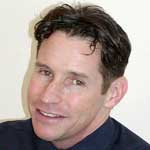-
- Robertson asks viewers to pray for retirement of liberal Supreme Court justices
- Librarian told to stop talking about gay rights at work
- Mich. gov. gives a shout out to the gay community
- Arizona gay couple sues to overturn state’s marriage ban
- Democratic presidential candidates address gay issues in HRC forum
- Discharged gay vet challenges constitutionality of ‘don’t ask, don’t tell’
- Lawmakers move to block gay marriage prohibition
- National News Briefs
- World News Briefs
-
- Keynote Speaker: Lorri L. Jean
- Grand Marshal: Jess San Roque
- Grand Marshal: Esera Tuaolo
- Grand Marshal: Bonnie Dumanis
- Champion of Pride: Jess Durfee
- Champion of Pride: Franko Guillen
- Friend of the Year: Dede Alpert
- Stonewall Service Award: V.A.G.I.N.A.
- Friend of the Year: Linda Bessemer
- Friend of the year: Marie S. Munoz
- Community Service Award: Ren Petty
- Community Service Award: Brenda Watson
- Pride Festival Main Stage Entertainment Lineup
- Main Stage Headliner: Danielle LoPresti
commentary
Taking pride and giving thanks
Published Thursday, 24-Jul-2003 in issue 813
BEYOND THE BRIEFS
The Supreme Court’s landmark holding, overruling Bowers v. Hardwick and abolishing consensual sodomy laws, in Lawrence v. Texas would never have occurred had it not been for the courage and pride of a gay couple to challenge the Texas law and the work done by all the various legal groups working towards GLBT equality.
But it’s also important to remember another openly gay couple and the effect they had on a future Supreme Court justice named J. Anthony Kennedy, the Reagan-appointee who proved to be the crucial vote in Lawrence.
Kennedy has authored three cases involving the rights of gays and lesbians: Lawrence v. Texas, Romer v. Evans, and Southworth v. Texas.
Romer v. Evans held that a state may not show bias against gays and lesbians without any other reason than its dislike for homosexuals.
While everyone knows about Lawrence and Romer, Southworth v. Texas was a case upholding the right of student associations to spend student money in support of gay and lesbian student groups.
Justice Kennedy visited Cal Western a few years ago, where I thanked him for Romer and explained that, through Southworth, millions of college students learn about GLBT people through the work of GLBT student groups.
Had the court ruled otherwise, there’s no question that it would have marked the end of funding for many GLBT student groups on college campuses.
People may have forgotten that Justice Kennedy is on the U.S. Supreme Court today because Robert Bork is not. Bork supported Bowers v. Hardwick and found nothing unconstitutional about putting gay men and lesbians in jail for conduct inside their homes. Bork never would have voted to overrule Bowers. We would have had a 4-4 split, with Justice O’Connor simply saying that sodomy laws are fine, they just have to apply to both gays and straights.
Gays joined with others in getting the U.S. Senate to reject Bork. This should give us all reason to support efforts to keep extreme right-wing conservatives off the Court. President Bush’s favorite justice, Antonin Scalia, not only approves of laws that imprison gays and lesbians, he also supports laws that prohibit masturbation in the privacy of one’s home.
While Justice Kennedy was in the majority in Dale v. Boy Scouts of America, it’s safe to say that he agreed with the language in the case roughly comparing the BSA’s policy against gays to the KKK’s discriminatory practices.
Cases involving the BSA will reach the Supreme Court again. This time the BSA will ask the court to exempt it from laws prohibiting cities from granting subsidies to groups like the BSA that discriminate on the basis of religion and sexual orientation.
This is at issue in San Diego’s subsidized lease of Balboa Park land to the BSA. Soon U.S. District Judge Napolean Jones will rule on the case.
Given the Lawrence ruling, Jones will most likely side with the plaintiffs — children of atheists and lesbians. As an African-American who grew up in a segregated America, where black kids couldn’t use the “whites only” pool in public parks, it’s hard to imagine him finding a legal basis for a city to gift land to a group that will not permit gay youth access to a club on public land.
The other case heading to the U.S. Supreme Court is now before the California Supreme Court. It involves the city of Berkeley’s refusal to continue to give the BSA berthing perks for its boat.
I predict Justices Kennedy and O’Connor will conclude that the BSA can discriminate, just like the KKK, but that the BSA cannot compel taxpayers to subsidize its discriminatory practices through subsidies and tax exemptions.
When President Reagan considered Kennedy — a judge on the Ninth Circuit Court of Appeals — for the Supreme Court, he wasn’t Reagan’s first choice. Robert Bork was. Kennedy wasn’t Reagan’s second choice. Douglas Ginsburg was. But Ginsburg had a history with “non-medical” use of marijuana, so Reagan dropped him.
At the time, Ed Meese, then Attorney General, was skeptical about Kennedy. While Kennedy had conservative credentials, Meese was upset because Kennedy had done something outrageous when Meese went to talk to him about being on the Supreme Court.
Meese came to Kennedy’s home and Kennedy invited him to a neighborhood barbeque. When Meese arrived, he saw that a gay couple, friends of Kennedy, were hosting the party. Meese was livid. Kennedy had gay friends! How could he have the gall to bring Meese to such a party?
That gay couple showed Kennedy that our relationships are as valid as anyone else’s. And maybe he taught something to Ed Meese. Apparently, Reagan, who had plenty of gay Hollywood friends, didn’t think much of Meese’s misgivings. Kennedy sailed through the confirmation process.
|
|
Copyright © 2003-2025 Uptown Publications


